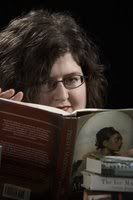 “Come away, O human child!
“Come away, O human child!To the waters and the wild
With a faery, hand in hand,
For the world’s more full of weeping than you can understand”
- The Stolen Child by W.B. Yeats
Children often express their displeasure by running away from home, wandering a short distance before returning once they feel their parents have been sufficiently punished. The parents, awash with joy at once more having their child, brush off any minor personality differences as residual shock from a traumatic experience. But what if the child brought home isn’t their child at all, but a changeling?
This is the premise behind Keith Donohue’s haunting debut novel, The Stolen Child. Drawing its plot and title from the W.B. Yeat’s poem of the same title, Donohue has crafted the modern fairy tale of Henry Day and the changeling (or hobgoblin) who replaces him. One summer night Henry runs into the forest and hides in a tree. It is there that he is taken by the changelings, who have been covertly watching him. If changelings wish to reenter the world, they must find a child to replace who is exactly the same age as the changeling was when he/she left. Henry becomes the magical Aniday and the changeling who replaces him becomes the new Henry Day, suddenly a musical prodigy. The Stolen Child is the story of the two young boys searching for identity in a world turned upside down.
The new Henry slowly adjusts to the life of a twentieth-century family. Having spent more than one hundred years in the forest, he spends his time in intense concentration, “I set my mind to forgetting the past and becoming a real boy again.” Aniday spends learning a way of live beyond civilization and it is only by a similar amount of effort that he maintains the ability to read and write.
Yeat’s poem shows life in the woods as one full of innocence; however, many experts suggest that the forest of fairytales is really about the journey of sexual awakening as the child moves through puberty into adulthood. Unknown creatures, dangers and pain lurk in the dark forest, a journey of pitfalls every child must travel on the road to maturity.
In Donohue’s forest, the tribe of hobgoblins exists in a life free from memories, familial ties and responsibility. Their life a perpetual existence given to the baser instincts of the body, one in which all sense of self disappears along the way.
As decades pass, Aniday lives as a permanent child in the wilderness, making friends and enemies among the hobgoblin band, struggling for survival, and trying to remember his past. The other changelings tell Aniday to "stay away from people and be content with who you are." By settling for the life in the forest however, Aniday would lose the innocence of his dreams of a future. Both Aniday and Henry are tormented by the fleeting memories of half-remembered paths and it is these memories that keep them tied to a search for identity - destined to lose their innocence.
Donohue has created a mesmerizing world that seems to exist shifted slightly outside of our time. The Stolen Child quickly engages the reader in the familiar rhythm of childhood fairytales, allowing the magic to infuse the carefully crafted words. It is only upon stepping outside, back to reality, that questions slowly seep into the reader’s mind.
Has Henry really lived as a changeling or could he be suffering from split personality, everything being a fantasy his illness has created? Donohue says in an interview with the Pittsburgh Tribune Review: “The subconscious world, the world underneath, is a real world, and it's just as valid, our imaginative reality, as our everyday reality.” Whether readers choose to approach Donohue’s offering as it is written or choose to engage the novel on an existential level, The Stolen Child is a timeless, magical novel that will linger with readers long after they read the last page.
See the review posted at ReadySteadyBook.
tags: books book reviews stolen child keith donohue


3 comments:
Thanks for bringing a very intriguing sounding book to my attention!
You're welcome Chris! It's a pretty amazing novel that is getting a lot of rave reviews but isn't getting a lot of reader attention.
I'm with you there Rob, I had to pace my reading because I didn't want the book to end too soon.
I was amazed with how Donohue handled pacing - it was masterful.
Post a Comment